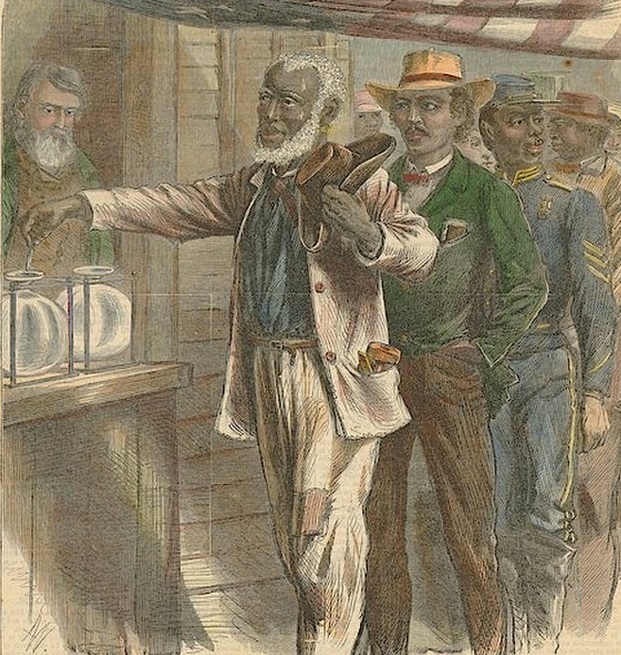
by Richard Subber | Feb 5, 2023 | Book reviews, Books, Human Nature, Power and inequality
it’s not about rational choices…
Book review:
What’s Wrong with Economics?
A Primer for the Perplexed
by Robert Jacob Alexander, Baron Skidelsky (b1939)
New Haven, CT: Yales University Press, 2020
223 pages
Skidelsky has written a powerfully convergent book about the origins and enduring nature of economics and the lamentably over-hyped concept of Homo economicus.
“Economic Man”—the human calculating machine that continuously, exclusively acts in the most rational way to achieve maximum value at minimum cost—exists only in the imaginations of economists who invented him to fit their equally fictitious models of human behavior and modern economic activity.
In a nutshell: “…the neoclassical model of rational behaviour based on fixed preferences, complete contracts, and ample relevant information is the wrong one.” (p. 90)
What’s Wrong with Economics? will help you understand what’s wrong with our current so-called capitalist system and the people, companies, and governments that it mostly benefits.
* * * * * *
Book review. Copyright © Richard Carl Subber 2023 All rights reserved.
The Reader (Der Vorleser)
Not just a rehash of WWII…
by Bernhard Schlink
–
Seeing far: Selected poems with 47 free verse and haiku poems,
and the rest of my poetry books are for sale on Amazon (paperback and Kindle)
and free in Kindle Unlimited, search Amazon for “Richard Carl Subber”
* * * * * *

by Richard Subber | Jan 23, 2023 | Book reviews, Books, History, World history
a wonkish analysis of combat…
Book review:
Military Power:
Explaining Victory and Defeat in Modern Battle
by Stephen Biddle
Princeton, NJ: Princeton University Press, 2004
337 pages
Military Power is a fastidiously wonkish analysis of combat and military power.
Biddle makes his case for considering that “force employment,” i.e., combat doctrine and tactics, is at least as important in understanding the outcomes of battle as the count of who has the most guns and the biggest armies.
Earlier authors might have called it “leadership.”
Biddle offers remarkably detailed blow-by-blow commentary about the second battle of the Somme River in 1918, the Allies’ Normandy breakout in 1944, and Operation Desert Storm in 1991.
It’s not an easy read. Military Power will reward the reader who wants to know more.
* * * * * *
Book review. Copyright © Richard Carl Subber 20232 All rights reserved.
Book review:
The Adventures of Sherlock Holmes
from the agile mind
of Arthur Conan Doyle
–
As with another eye: Poems of exactitude with 55 free verse and haiku poems,
and the rest of my poetry books are for sale on Amazon (paperback and Kindle)
and free in Kindle Unlimited, search Amazon for “Richard Carl Subber”
* * * * * *

by Richard Subber | Jan 18, 2023 | Book reviews, Books, Human Nature, Joys of reading
love and trust and good will…
Book review:
Silas Marner
by Mary Ann Evans “George Eliot” (1819-1880)
English novelist, an icon in Victorian literature
New York: The Macmillan Company, 1899, repr. 1932
348 pages
Silas Marner is, ultimately, a story of love and trust and good will in a world that tolerates all of the manifestations of the human spirit, both good and ill.
The story invites you to pay attention to the good guys.
Evans (Eliot) offers some of her insights regarding “people whose lives have been made various by learning.” (p. 24)
* * * * * *
Book review. Copyright © Richard Carl Subber 2023 All rights reserved.
The “dime novels” in the Civil War
Think “blood-and-thunder”…
–
In other words: Poems for your eyes and ears with 64 free verse and haiku poems,
and the rest of my poetry books are for sale on Amazon (paperback and Kindle)
and free in Kindle Unlimited, search Amazon for “Richard Carl Subber”
* * * * * *

by Richard Subber | Jan 6, 2023 | Book reviews, Books, Human Nature
television is entertainment at its worst
Book review:
Amusing Ourselves to Death:
Public Discourse in the Age of Show Business
by Neil Postman (1931-2003)
New York: Elisabeth Sifton Books/Viking, 1985
184 pages
This is a rare treasure—a can’t-put-it-down kind of book.
I wish I’d read it 35 years ago.
Amusing Ourselves to Death is a 184-page drumbeat of insight and reality about the devastating impact of television on our culture and our prospects of living the good life.
Postman, a media theorist and cultural critic, says television “is a medium which presents information in a form that renders it simplistic, nonsubstantive, nonhistorical and noncontextual; that is to say, information packaged as entertainment.” (p. 141)
He wrote the book before the internet got really started, and before the enhanced horrors of social media like Facebook and Twitter and TikTok.
He continued to write about the failures of our educational enterprises and the negative impacts of technology on our culture.
Don’t let Amusing Ourselves to Death be the only Postman book you read in the near future.
* * * * * *
Book review. Copyright © Richard Carl Subber 2023 All rights reserved.
Book review:
The American Revolution: A History
The “Founders” were afraid
of “democracy”…
by Gordon S. Wood
–
Above all: Poems of dawn and more with 73 free verse poems,
and the rest of my poetry books are for sale on Amazon (paperback and Kindle)
and free in Kindle Unlimited, search Amazon for “Richard Carl Subber”
* * * * * *

by Richard Subber | Dec 26, 2022 | American history, Book reviews, Books, History, Politics, Power and inequality
money did a lot of the talking…
Book review:
The Founders’ Fortunes:
How Money Shaped the Birth of America
by Willard Sterne Randall
New York: Dutton, an imprint of Penguin Random House LLC, 2022
324 pages
Randall offers details about the wealth—and intermittent lack thereof—of a number of the so-called “Founding Fathers,” and how persistently those men looked out for their own financial interests throughout the Revolutionary era.
Presumptively you aren’t surprised to learn about these details.
There’s plenty more to learn when you read The Founders’ Fortunes.
The matter-of-fact point is that these men were looking out for themselves at the same time that they were creating the independent United States of America.
* * * * * *
Book review. Copyright © Richard Carl Subber 2022 All rights reserved.
Book review: An Empire Divided
King George and his ministers
wanted the Caribbean sugar islands
more than they wanted the 13 colonies…
by Andrew Jackson O’Shaughnessy
–
My first name was rain: A dreamery of poems with 53 free verse and haiku poems,
and the rest of my poetry books are for sale on Amazon (paperback and Kindle)
and free in Kindle Unlimited, search Amazon for “Richard Carl Subber”
* * * * * *

by Richard Subber | Dec 19, 2022 | American history, Book reviews, Books, Democracy, History, Politics, Power and inequality
violence shut down the “Reconstruction”
Book review:
Splendid Failure:
Postwar Reconstruction in the American South
by Michael W. Fitzgerald (b1956)
Chicago: Ivan R. Dee, 2007
234 pages
Splendid Failure offers a shockingly realistic account of the so-called “Reconstruction” period after the Civil War. There was a lot more violence, much earlier in the time frame, than you probably know about.
The violence throughout the South was not successfully resisted by Northern forces after the war, and after the presidential election dispute of 1876, the Northern watchdogs withdrew their concern. Commercial and political interests asserted their primacy in the North.
Fitzgerald observes: “At the national level the Republicans were the party of economic growth” (p. 100).
The white elites who held the economic and political power in the South before the war basically regained their economic and political power after the brief period of nominally reformative so-called “Reconstruction.”
As we now know, the war and the so-called “Emancipation Proclamation” weren’t the end of the story.
* * * * * *
Book review. Copyright © Richard Carl Subber 2022 All rights reserved.
–
Seeing far: Selected poems with 47 free verse and haiku poems,
and the rest of my poetry books are for sale on Amazon (paperback and Kindle)
and free in Kindle Unlimited, search Amazon for “Richard Carl Subber”
* * * * * *





